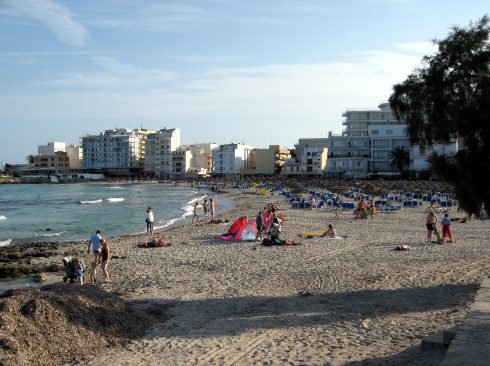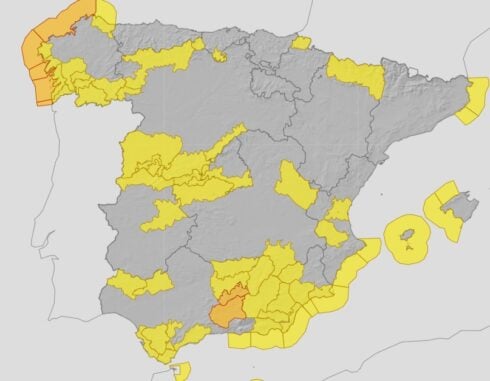MURCIA region property sellers are not putting up sales boards to prevent their houses becoming a target for squatters.
The bulk of adverts have shifted to online real estate sites with an increasing number of property listings being exclusive to the internet as house displays are cut.
The Murcia region real estate agents association spokesperson, Jeronimo Jover says that signs are ‘barely’ noticeable on the front of a third of properties being marketed.
READ MORE:
- WATCH: OnlyFans star sparks fury for squatting a flat in Ibiza and sub-letting rooms at ‘exorbitant’ prices – as ‘desokupa’ force arrives to turf her out
- British tourists are caught up in ‘squatter fraud’ nightmare in Marbella: Holidaymakers are met by police after unknowingly paying up to €1,000 EACH to a man who ‘had no right to lease luxury villa’
- British expats are attacked by armed squatters upon returning to their home in Spain: Cannabis-growing thugs took over villa while the owners were on holiday
- Outrage in Spain after squatters take over home of 87-year-old woman while she was visiting her daughter in Canada

“Traditional board displays are down by 70% due to owners fearing that an empty house with a sign will tempt squatters to move in,” said Jover.
In the past, owners living in ‘for sale’ properties didn’t want a sign to stop a nosey person with no intention of buying it wanting to book a viewing session just for their own curiosity.
“The biggest group is now empty house owners who are reluctant to display an advertising board,” Jover added.
He estimates that barely a third of homeowners who want to sell or rent ‘still put the sign in their window’, and as occupiers, show less than concern than in the past over people wanting to have a look.
Using a real estate portal makes things a little harder for a potential buyer or tenant as some listings do not mention the exact location or even the street where the property is.
Jeronimo Jover said; “The advantage of the sign is that you could see where a flat is, but now people don’t put the location online as a precaution and just give a reference to the area or the neighbourhood.”
He added that a lack of information leads to more time being wasted, as in many instances a particular location does not meet the requirements of an interested party.
Jover recommends that sellers or potential landlords list the location so that if anybody who shows an interest, doesn’t visit without the full details, and therefore cuts the potential for complaints.
“Before, when you wanted a house in an area, you walked around, made a phone call and you knew what was being talked about- now you have to go on real estate portals,” he commented.
Despite a fall in the number of squatting cases going to court in recent years, Jeronimo Jover said it is still a serious issue.
“Barely 20% of the cases reach court as owners know that squatters will leave if they get out the chequebook and most of the current occupations are simply about trying to extort money from the owner.”
Click here to read more Property News from The Olive Press.








